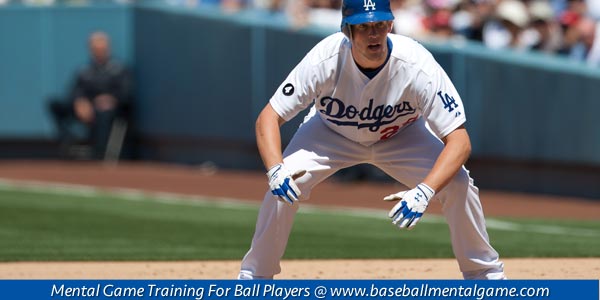How Frustration Hurts Your Game
How does frustration affect your game? Is there anything you can do to manage or overcome frustration?
Learning to deal with frustration appropriately leads to giant leaps in improvement. The first step in overcoming frustration is to make a crucial decision; the decision to move on.
In our Softball and Baseball Mental Toughness Survey, a high school senior requested help with overcoming frustration:
“Do you have any tips on dealing with frustration? I am a starting pitcher for my high school team and had nagging injuries throughout my career. As soon as I have a bad game or aggravate an injury, I get so frustrated that it takes me a long time to recover mentally and pitch well again.”
It is easy to get stuck in frustration mode. You worked hard all year improving mechanics, rehabbing a quad injury, and adding a new pitch to your arsenal.
Dealing With Frustration
You started the season pitching your best ball and allowing zero runs through your first three starts. You had never felt physically stronger or more comfortable on the mound.
You were so sure this was going to be your year. In your fourth start, you injured your elbow in the first inning and had to leave the game.
You were so frustrated. You worked so hard during the off-season, and now you feel everything is lost. You thought your efforts were wasted, especially if you cannot finish out the season. You even had thoughts of never wanting to play again.
These thoughts and feelings are understandable would cause any player to become frustrated.
At some point, you must make a decision. The decision will have a significant impact on your career. Do you stay stuck in frustration? That is, will you focus on “everything you have lost”? That decision will keep your frustration level growing day after day.
The internal and external stress from frustration
This will prolong healing and keep you on the sidelines longer. Your confidence will nosedive. With this mindset, you may never fully recover mentally and physically to regain your pre-injury form. The other choice, when faced with frustration, is to look for an active present-oriented response. This choice answers the question, “What can I do right now?”
A positive response is empowering because you are focused on taking action instead of a passive choice that focuses on staying stuck and wallowing in negativity. For example, you can choose to re-evaluate your game, talk to your coach about improving mechanics, revamp your diet, contact a mental game coach, etc. You can always find at least one strategy to move forward after experiencing frustration.
Recently injured Houston Astros third baseman Alex Bregman experienced frustration after being shelved with a second quad injury. Bregman has been relatively healthy throughout his career, but Bregmanís second leg injury is in two years.
BREGMAN: “I know how much work I’ve put in in the off season, Spring Training, and the season. It’s disappointing. I felt like I was about a centimeter away from turning the corner and getting hot This is definitely frustrating, to say the least, but I’ll be back, and I’ll be back stronger than ever.”
Bregman admits to being frustrated. Who wouldn’t be frustrated given similar circumstances? Bregman has to move forward, follow doctor’s orders, pay attention to his rehab and stay mentally engaged with his team.
Responding well after experiencing frustration will get you back on track and mentally stronger than before.
Managing Frustration for Ball Players
Peak performance always involves choices; go to practice or stay home; go through the motions or put in the work; wallow in frustration or take action that will pay off in the future.
All choices have repercussions. Moving past frustration all comes down to making the right choice–instead of dwelling on what’s unfair.
Related Sports Psychology Articles
- Professional Baseball Players and Frustration
- How to Develop a Ball Player Championship Mindset
- How to Manage High Expectations
*Subscribe to The Sports Psychology Podcast on iTunes
*Subscribe to The Sports Psychology Podcast on Spotify
Get the Mental Edge – With Mental Toughness Coaching
Mental toughness coaching helps serious athletes like you uncover the beliefs and attitudes that keep you from performing to your potential. You’ll learn mental game strategies to perform confidently in competition and how to overcome performance barriers.
You can improve your mental game with Mental Game Coaches, Dr. Patrick Cohn and Jaclyn Ellis, M.S. You can opt for one-on-one sessions with Dr. Cohn in Orlando, Florida, or you can stay where you are and get coaching from anywhere in the world via telephone, Skype, Zoom, or FaceTime.
One-on-one mental coaching is the fastest and most effective method to improve your mental game, boost your performance, and make lasting changes. We have a variety of mental coaching programs to choose from.
Please call us at 888-742-7225 with your questions.

